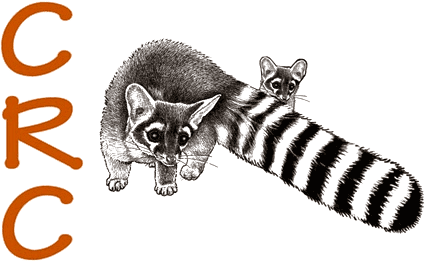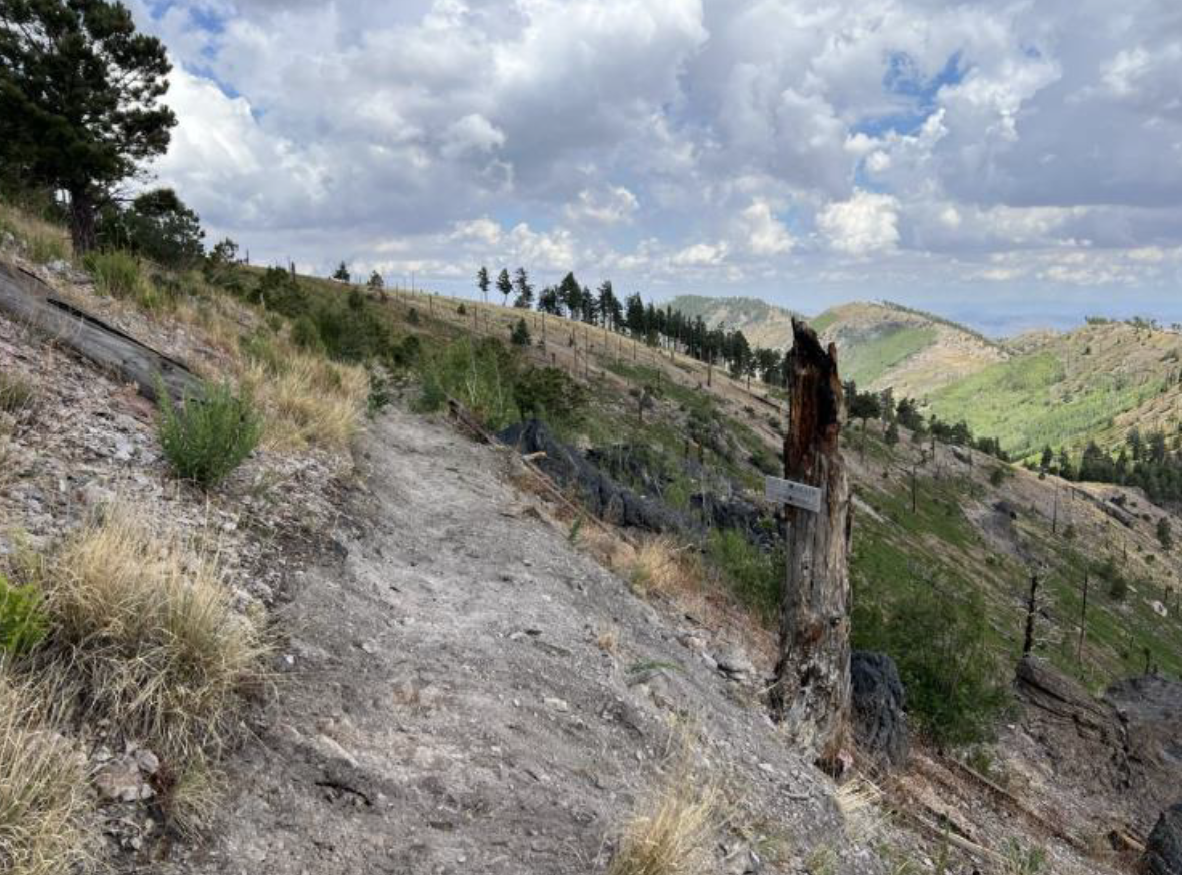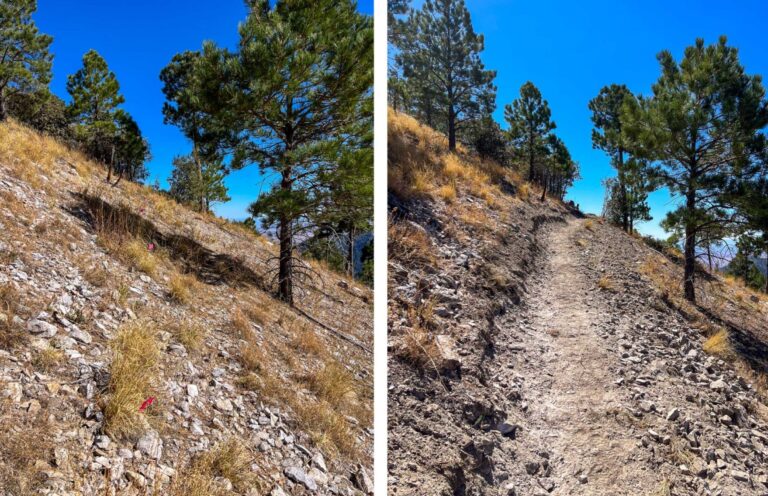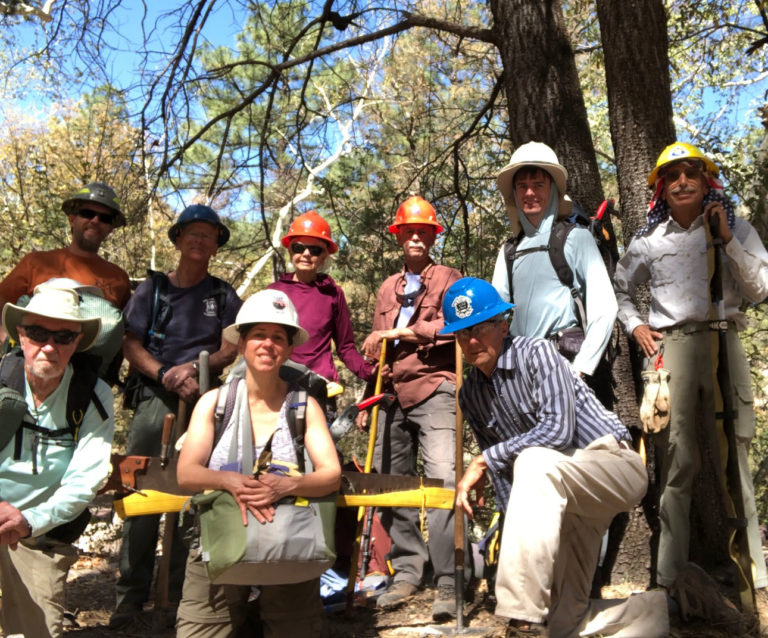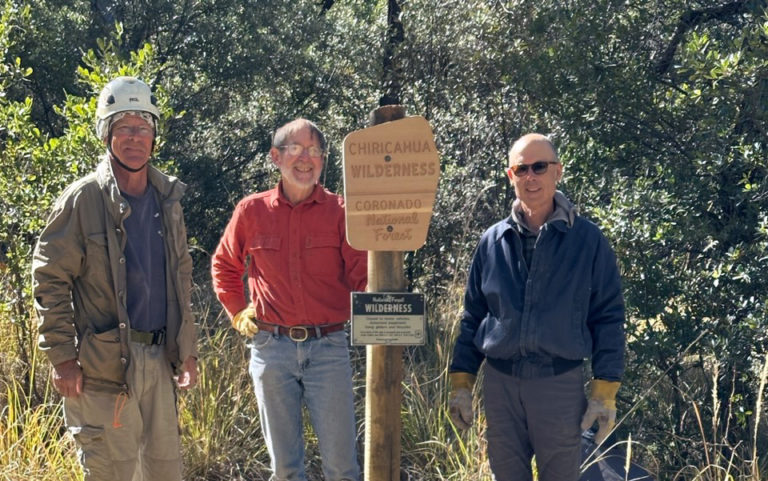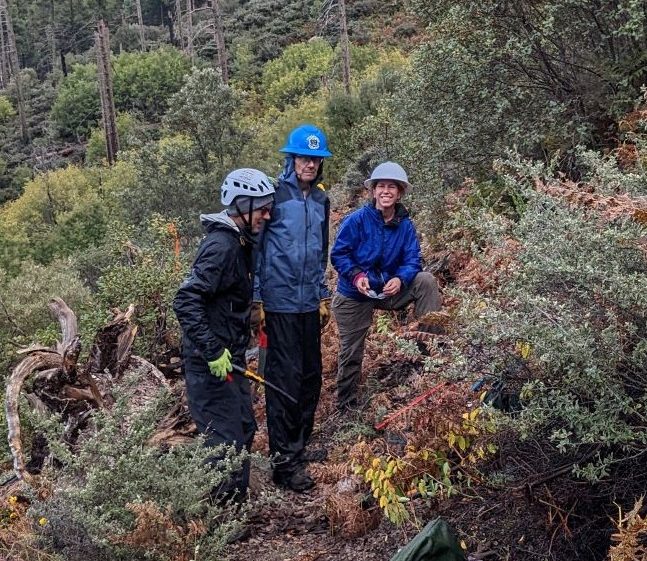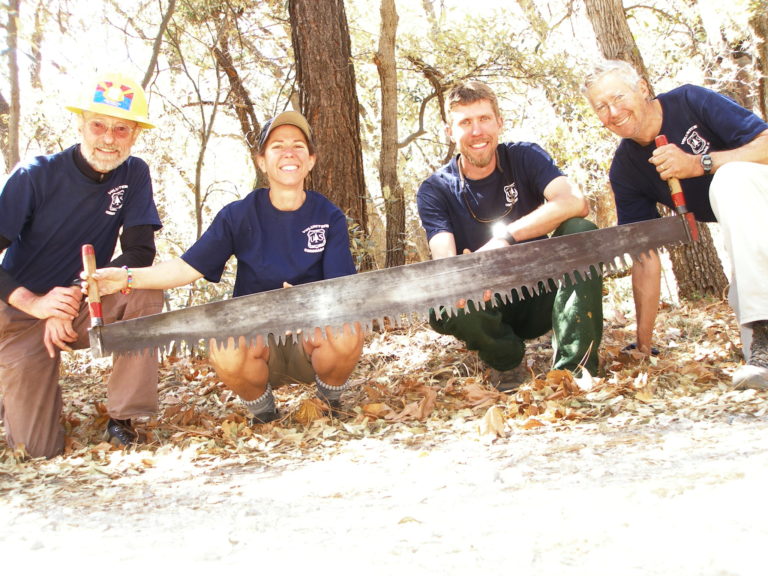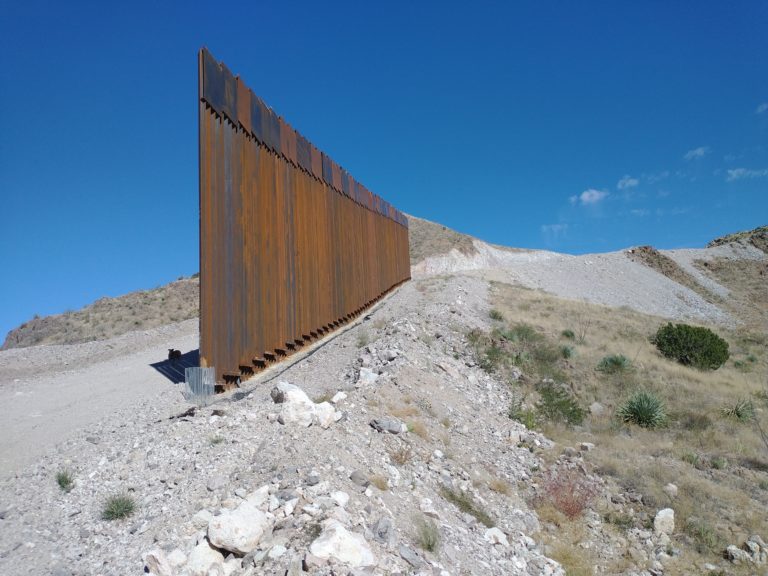April – September 2025 Conservation work
The Chiricahua Mountains within the Coronado National Forest host an extensive system of 76 trails. This network winds through the 87,700-acre Chiricahua Wilderness, offering access to diverse habitats, dramatic geology, and panoramic views across southeastern Arizona and into northern Mexico.
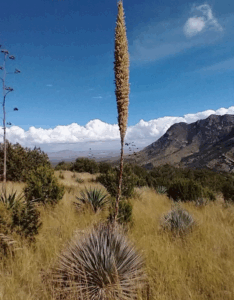
Originally totaling over 200 miles of hiking routes, these trails range from short connectors to longer, more rugged routes and include iconic paths like the Crest Trail (#270) that traverse the high ridges of the range. In the past, the system provided connectivity between the many Chiricahua canyons and peaks. Today we find perhaps half of the original trails in acceptable condition.
The Chiricahua Regional Council through its Stewardship Program is committed to preserving and improving what’s left of this extraordinary system. We’re striving to restore and recreate connectivity that existed historically.
CRC and its partners made real gains toward improving trail conditions in the Chiricahua mountains this field season. April brought the Chiricahua Wilderness Trail Crew to work in the West Turkey Creek area. The western slope trails of Rock Creek (#259), Saulsbury (#263) and Rattlesnake (#275), received much needed attention. The focus then shifted to the east side of the range and to Price Canyon Trail (#224). Members of the local hiking group assisted John Sumner and his able sawyers.
Later in the spring, a Sierra Club service group made further improvements to (#224).
In late spring, the Chiricahua Regional Council partnered with the Friends of Cave Creek Canyon to fully fund a week of work on the Crest Trail by Wild Arizona.
As the season turned to the hot summer months, the Youth Conservation Corps took up residence in Rucker Canyon, that great complex of rock, chasm, and Madrean woodland. The group was supervised by Wild Arizona. Outreach to local and tribal communities for recruitment of these young adults was funded by CRC. The heat was oppressive, but they were able to escape to higher elevation and do tread reconstruction along several segments of the Crest Trail (#270).
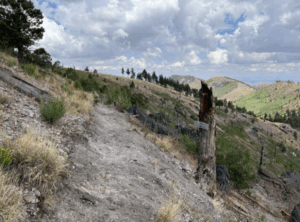
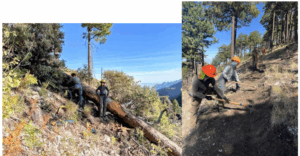
Despite interruptions to the flow of recreation funds at the Coronado National Forest earlier in the year, money eventually became available. In particular, the RAC (Resource Advisory Committee) played a large part in turning the situation around. This led to the hiring of Wild Arizona’s trail crew who returned to pour more of their skilled labor into our trail system. Not only did they re-bench segments of the Crest Trail, but in September they built a rerouted section of the Rucker Canyon Trail (#222). We encourage everyone to experience this amazing new addition. Following on this work was another visit from John Sumner and the Wilderness Trail Crew who removed over 100 logs from #222.
Education:
Backcountry Preparedness Workshop
Following our Heritage Days participation, CRC and FoCCC hosted a backcountry preparedness workshop on September 21st, led by Education Coordinator Margaret Wilch and CRC’s Dirk Sigler this educational initiative attracted 15 participants and provided essential safety training for outdoor enthusiasts. Follow-up workshops are planned for later this fall, demonstrating our commitment to ongoing community education.
Exotic Invasive Species Management
The CRC continued its critical work addressing invasive species threats to our ecosystem. Through our partnership with Wild Arizona these ongoing efforts have successfully treated non-native invasive plants, including Tree of Heaven and other problematic species along Cave Creek. This work is essential for maintaining the ecological integrity of our mountain ecosystems. Planned for November is a workshop open to the public in Paradise, AZ to train in methods of eradicating exotic plant species. Wild Arizona’s Jonathan Patt will be the trainer. This is a co-sponsored event with Friends of Cave Creek Canyon
Partnerships and Collaborations
Throughout this period CRC strengthened key partnerships with:
• Friends of Cave Creek Canyon- Joint trail projects and educational initiatives
• Wild Arizona- Multiple project collaboration on the trail system and non-native invasive species removal
• Coronado National Forest- Youth Conservation Corps program- Mentorship and recruitment support
• National Forest Foundation- Partner grant funding for trail development
• Local tribal communities- Cultural outreach and collaborative planning
Looking Forward
The CRC’s accomplishments during this period demonstrate our multi-faceted approach to conservation through trail stewardship, community education, invasive species management, and collaborative partnerships. Our work continues to build bridges between conservation science, community engagement, and cultural heritage preservation in the Chiricahua Mountains.
